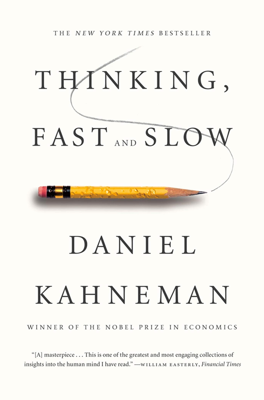The Lazy Controller
System 2: The Lazy Controller
Walking and Cognitive Speed: Kahneman discusses his walking routine to explain the concept of natural cognitive speed. Walking at a comfortable speed allows him to think clearly, but increasing the pace diminishes his cognitive clarity and ability to maintain coherent thoughts, emphasizing that cognitive effort and self-control share limited mental resources.
Conflict of System 2 Efforts: When engaged in demanding mental work, especially tasks heavy on short-term memory, other activities like walking become harder. This demonstrates System 2's limited capacity to multitask between physically and mentally demanding activities without losing efficiency.
Voluntary Effort and Ego Depletion: Engaging in any form of self-control or willpower is draining, temporarily reducing the capacity for further mental effort. Kahneman cites studies showing that after engaging in a task requiring significant self-control, individuals are more likely to give in to temptation, make selfish choices, or underperform in subsequent tasks. This depletion can affect various behaviors and cognitive functions, reflecting the strain on System 2.
Glucose and Cognitive Function: The brain's demand for glucose increases during difficult cognitive tasks. Experiments reveal that consuming glucose can help restore cognitive capabilities diminished by depletion. This finding points to a physiological basis for cognitive effort, linking mental work directly to energy consumption in the brain.
Real-World Decisions Impacted by Depletion: Kahneman discusses a study involving parole judges whose decision-making effectiveness deteriorated the longer they worked without a break. Their likelihood of granting parole decreased as they became more mentally fatigued, demonstrating how even professional judgments are susceptible to cognitive depletion.
Monitoring System 1: System 2's role extends to supervising actions and thoughts initiated by System 1, helping to filter or modify them before they influence behavior. This supervisory duty requires effort and, when depleted, leads to potentially erroneous or suboptimal decisions, as illustrated by the bat-and-ball puzzle. This task shows how people often accept their first intuitive response without engaging System 2 to verify its correctness.
Distinguishing Rationality and Intelligence: Kahneman discusses the work of researchers like Keith Stanovich, who differentiate between intelligence and rationality. Intelligence involves raw mental capability in cognitive tasks, whereas rationality involves the critical application of this intelligence, particularly a person's willingness to engage in effortful thinking and override intuitive, incorrect judgments. This distinction helps explain why some people are more prone to cognitive errors despite high intelligence.
This chapter explores the capabilities and limitations of System 2, emphasizing its bounded nature and the effects of mental fatigue. It underscores the importance of managing cognitive load to maintain effective decision-making and self-control.
